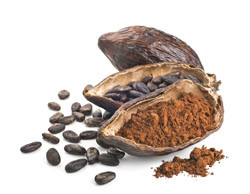Flavanols for a healthy heart
The EU-funded FLAVIOLA project investigated the impact of flavanol consumption in the EU and developed cocoa flavanol (CF)-rich food product prototypes. Comprehensive studies were carried out to assess dietary sources and average habitual intake of flavanols, such as epicatechin and catechin, and of their oligomeric derivatives, the proanthocyanidins (PAs) in Europe. This work was based on utilizing the FLAVIOLA Food Composition Database (developed by project members), and revealed that tea, pome fruit (apples, pears etc.), berries, cocoa products and stone fruit are major contributors to the total dietary intake amount of flavanols in the EU. Moreover, researchers addressed previously existing gaps in our knowledge with regard to flavanols, FLAVIOLA developed and validated innovative analytical methods to assess the absorption, distribution, metabolism and excretion (ADME) of flavanols following dietary intake, and to study their biomedical effects in rigorous clinical dietary intervention studies and population-based epidemiological investigations. For the first time, a method for the analysis of CFs and PAs in food products received an accreditation by the Association of Analytical Communities (AOAC). Another significant milestone of FLAVIOLA was the development for use in the clinical studies of standardized CF-containing food product prototypes along with adequate flavanol-free controls that are matched to CF-containing test products with regard to macro-, micro-nutrient content, caloric density, and orosensory properties, thus providing a fully valid placebo control. Study outcomes comprehensively demonstrate CF-mediated cardiovascular health benefits in healthy men and women. CF intake significantly improved parameters of cardiovascular function including arterial flow-mediated dilation and blood pressure. In the elderly, CF-rich diets helped to reverse age-related increases in blood pressure and vascular stiffness, thereby improving blood circulation. No significant intra- and inter-individual variability in flavanol ADME was found across study populations, thus corroborating the tenability for developing population-based CF intake guidelines. The outcomes of FLAVIOLA have provided novel and innovative data and furthered our knowledge about dietary flavanols and their beneficial effects on cardiovascular health. Project outcomes have thereby laid solid foundations for future research into innovative therapeutic- and dietary strategies to improve cardiovascular health and to support healthy aging.
Keywords
Flavanol, vascular health, flow-mediated dilation, cocoa, proanthocyanidins, dietary intervention, anti-inflammatory







